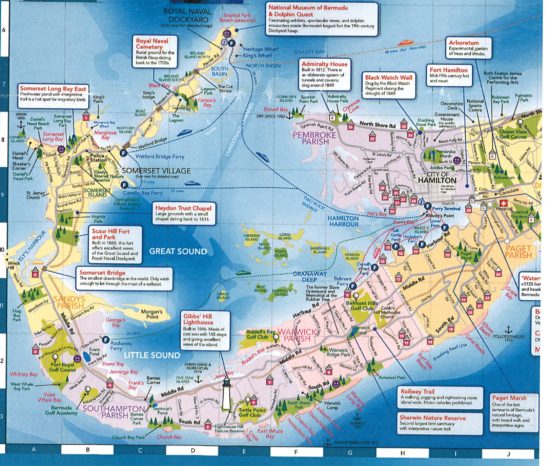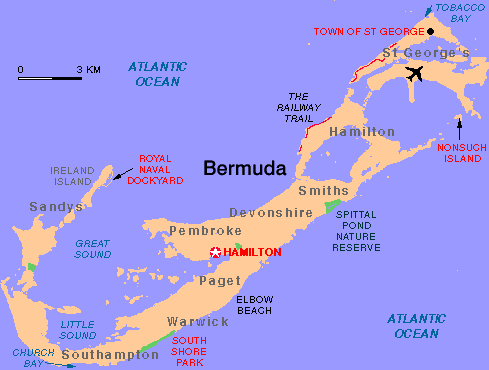Unraveling the Enchantment: Exploring the Caribbean Map and Bermuda’s Unique Place Within It
Related Articles: Unraveling the Enchantment: Exploring the Caribbean Map and Bermuda’s Unique Place Within It
Introduction
In this auspicious occasion, we are delighted to delve into the intriguing topic related to Unraveling the Enchantment: Exploring the Caribbean Map and Bermuda’s Unique Place Within It. Let’s weave interesting information and offer fresh perspectives to the readers.
Table of Content
Unraveling the Enchantment: Exploring the Caribbean Map and Bermuda’s Unique Place Within It

The Caribbean Sea, a vast expanse of turquoise waters cradling a tapestry of islands, is a destination that evokes images of white-sand beaches, vibrant coral reefs, and a rich cultural heritage. Within this mesmerizing archipelago, Bermuda stands out as a distinctive jewel, possessing a unique geographical identity and captivating allure.
A Glimpse into the Caribbean Map: Unveiling the Geography
The Caribbean Sea, located in the North Atlantic Ocean, is bordered by Central and South America to the west and south, and by the Greater Antilles to the north. This vast body of water encompasses over 7,000 islands, islets, reefs, and cays, grouped into various island arcs and island chains. These formations are a product of tectonic activity, with volcanic eruptions and the movement of the Earth’s plates shaping the landscape.
Bermuda: An Atlantic Anomaly
While the Caribbean Sea is predominantly defined by its tropical climate and proximity to the mainland, Bermuda defies this typical picture. Located approximately 650 miles east of North Carolina, Bermuda stands alone as a unique geographical entity in the North Atlantic Ocean. This volcanic archipelago, formed millions of years ago by underwater volcanic activity, is not part of the Caribbean plate, but rather a distinct geographical entity, a testament to the Earth’s dynamic processes.
The Enchantment of Bermuda: Beyond Geography
Bermuda’s allure transcends its unique geographical location. This island nation, known for its pink-sand beaches, crystal-clear waters, and lush vegetation, offers a captivating blend of natural beauty, historical charm, and modern amenities.
A Legacy of History and Culture
Bermuda’s history is a fascinating tapestry woven from maritime exploration, colonial influence, and cultural exchange. The island’s strategic location made it a vital stopping point for ships traversing the Atlantic, leading to a rich maritime heritage. The island’s cultural identity is a vibrant blend of European, African, and indigenous influences, reflected in its architecture, music, and cuisine.
Exploring Bermuda’s Natural Wonders
Beyond its historical significance, Bermuda boasts an array of natural wonders. The iconic pink sand beaches, a result of microscopic foraminifera shells, are a sight to behold. The island’s turquoise waters are home to a diverse ecosystem, including vibrant coral reefs teeming with marine life. Bermuda’s lush vegetation, characterized by unique plant species, adds to its natural beauty.
The Appeal of Bermuda’s Tourism:
Bermuda’s unique combination of natural beauty, historical significance, and modern amenities has made it a popular tourist destination. Visitors can enjoy a range of activities, from relaxing on pristine beaches to exploring historic sites, indulging in world-class cuisine, and engaging in watersports.
Understanding the Importance of the Caribbean Map and Bermuda’s Place Within It
The Caribbean map, with its intricate network of islands and diverse landscapes, holds immense cultural, economic, and environmental significance. It is a region rich in history, boasting vibrant cultures, and offering breathtaking natural beauty. Bermuda, while geographically distinct, contributes to the region’s unique character and adds a layer of complexity to the Caribbean narrative.
Frequently Asked Questions (FAQs)
1. What is the geographical location of Bermuda?
Bermuda is located in the North Atlantic Ocean, approximately 650 miles east of North Carolina. It is not part of the Caribbean Sea, but rather a distinct geographical entity.
2. How did Bermuda form?
Bermuda is a volcanic archipelago formed millions of years ago by underwater volcanic activity.
3. What are the main attractions in Bermuda?
Bermuda is known for its pink-sand beaches, crystal-clear waters, lush vegetation, and historic sites.
4. What is the culture of Bermuda like?
Bermuda’s culture is a blend of European, African, and indigenous influences, reflected in its architecture, music, and cuisine.
5. What are some of the challenges facing Bermuda?
Bermuda faces challenges related to its small size, limited resources, and dependence on tourism.
Tips for Visiting Bermuda
- Plan your trip in advance: Bermuda is a popular destination, so it is essential to book flights, accommodation, and activities in advance, especially during peak season.
- Explore the island: Bermuda is relatively small, making it easy to explore. Rent a scooter or bicycle to experience the island at your own pace.
- Enjoy the beaches: Bermuda is famous for its pink-sand beaches. Spend time relaxing, swimming, snorkeling, or simply soaking up the sun.
- Discover the history: Bermuda has a rich history, with numerous historic sites to explore. Visit St. George’s, a UNESCO World Heritage Site, or Fort Hamilton, a former military base.
- Experience the local culture: Sample the local cuisine, listen to live music, and interact with the friendly locals.
Conclusion
The Caribbean map and Bermuda’s unique place within it offer a fascinating glimpse into the diversity and complexity of the world’s geography. While Bermuda stands apart from the typical Caribbean landscape, it contributes to the region’s rich tapestry of culture, history, and natural beauty. Understanding the geographical context of both the Caribbean Sea and Bermuda allows for a deeper appreciation of their individual and collective significance.








Closure
Thus, we hope this article has provided valuable insights into Unraveling the Enchantment: Exploring the Caribbean Map and Bermuda’s Unique Place Within It. We hope you find this article informative and beneficial. See you in our next article!